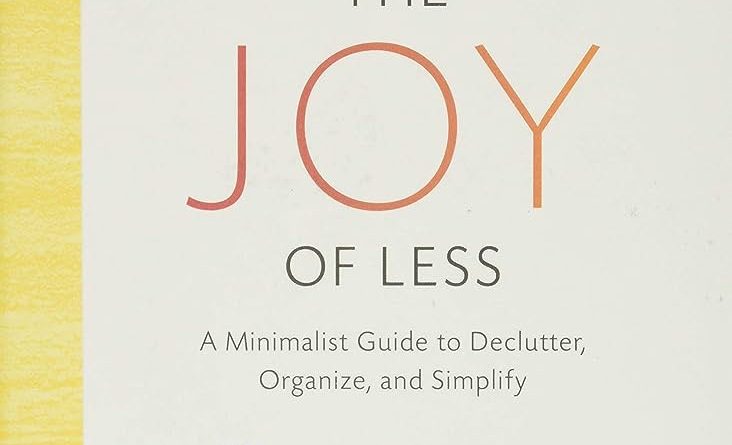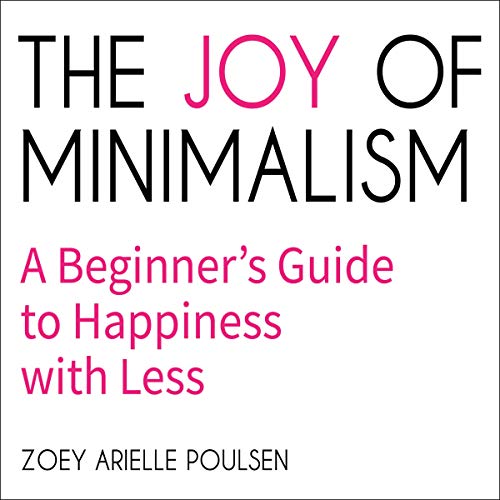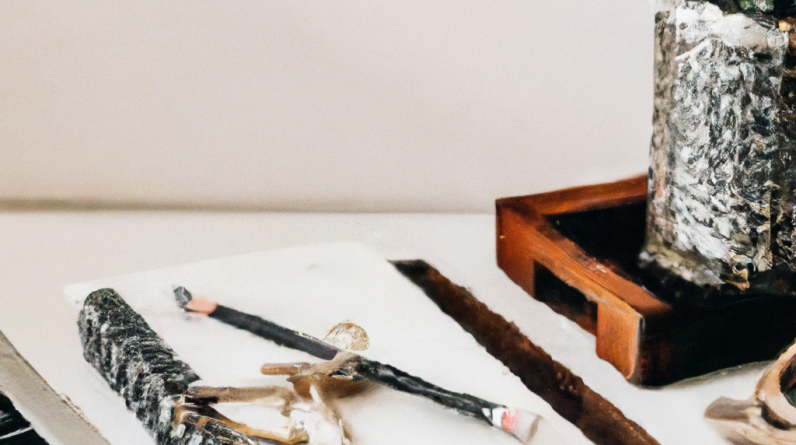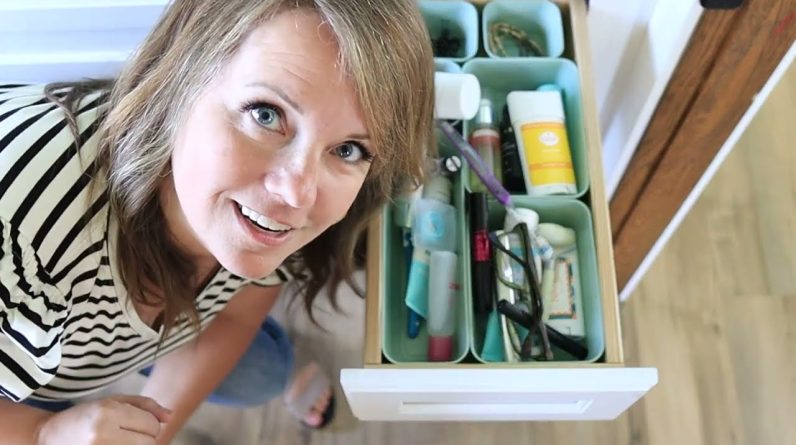
Imagine a world where your living space is free from clutter and your mind is at ease. With “The Joy of Minimalism,” you’ll discover the transformative power of decluttering and the freedom it brings. This captivating book paints a beautiful picture of simplicity, guiding you through the minimalist lifestyle and teaching you how to let go of material possessions that no longer serve a purpose. From creating a serene environment to cultivating mindfulness, “The Joy of Minimalism” is your ultimate guide to finding happiness in the smallest of things. Say goodbye to the chaos and hello to a life filled with joy, peace, and contentment.
Table of Contents
Chapter 1: Understanding Minimalism

1.1 What is Minimalism?
Minimalism is a philosophy and lifestyle that focuses on simplifying your life by intentionally reducing the excess in all aspects. It is about removing the unnecessary physical and mental clutter to make room for what truly matters. By embracing minimalism, you are choosing to prioritize quality over quantity, and to find joy in living with less.
1.2 Origins of Minimalism
The origins of minimalism can be traced back to various art and design movements in the 20th century, such as the De Stijl movement and the Bauhaus school. These movements emphasized simplicity and the use of basic geometric forms, influencing the minimalist aesthetic we see today. However, minimalism as a lifestyle gained popularity in recent years, as people started seeking alternatives to the consumer-driven culture and looking for more meaningful ways of living.
1.3 Benefits of Minimalism
Embracing minimalism can bring numerous benefits to your life. By simplifying your surroundings, you create a calmer and more organized living space, which in turn reduces stress and enhances overall well-being. Minimalism also promotes mental clarity by reducing decision fatigue and allowing you to focus on what truly matters. Additionally, adopting a minimalist lifestyle can lead to financial freedom, as you prioritize needs over wants and avoid unnecessary expenses. Lastly, minimalism encourages sustainable living by reducing environmental impact and promoting ethical consumption.
Chapter 2: Embracing Minimalism
2.1 Simplifying Your Living Space
Simplifying your living space is one of the fundamental aspects of embracing minimalism. It involves decluttering your home, getting rid of items that no longer serve a purpose or bring you joy, and organizing what remains in a thoughtful and intentional way. By simplifying your living space, you create a peaceful and harmonious environment that promotes relaxation and boosts productivity.
2.2 Creating a Minimalist Wardrobe
A minimalist wardrobe focuses on quality, versatility, and simplicity. It involves curating a collection of essential clothing items that can be mixed and matched to create various outfits. By owning fewer clothes, you reduce decision fatigue and save time in choosing what to wear each day. A minimalist wardrobe also promotes sustainability by encouraging conscious consumption and reducing textile waste.
2.3 Minimalist Design Principles
Minimalist design principles revolve around simplicity, functionality, and aesthetics. It embraces clean lines, open spaces, and a limited color palette to create a visually appealing environment. Minimalist design promotes a sense of calm and harmony, allowing you to fully appreciate and engage with your surroundings. Whether it’s in your home decor or graphic design, incorporating minimalist principles can elevate the overall aesthetic and create a more mindful and serene atmosphere.
Chapter 3: The Emotional Impact of Minimalism

3.1 Mindful Consumption
Mindful consumption is an essential aspect of minimalism that involves being intentional and aware of your purchases. It means considering the value and purpose of an item before bringing it into your life. Practicing mindful consumption helps you break free from the cycle of impulse buying and allows you to focus on acquiring things that truly align with your values and bring genuine joy.
3.2 Letting Go of Sentimental Clutter
Letting go of sentimental clutter can be one of the most challenging aspects of minimalism. However, by decluttering items that hold emotional attachments but no longer serve a purpose, you create space for new experiences and memories. It’s important to remember that the memories associated with these items will always remain with you, even if the physical objects are no longer present.
3.3 Living in the Present
Minimalism encourages living in the present moment and embracing the beauty of simplicity. By focusing on what you have rather than constantly seeking more, you cultivate gratitude and contentment. Minimalism teaches you to appreciate the small joys in life, find fulfillment in the present, and let go of unnecessary distractions that hinder your ability to fully engage with the world around you.
Chapter 4: Minimalism and Mental Clarity

4.1 Reducing Decision Fatigue
When your life is cluttered with unnecessary choices, it becomes easy to feel overwhelmed and drained. Minimalism helps alleviate decision fatigue by simplifying your surroundings and daily routines. By reducing the number of choices you need to make throughout the day, you free up mental energy for more important decisions and improve your overall focus and productivity.
4.2 Cultivating Focus and Productivity
A cluttered environment can hinder your ability to focus and be productive. Minimalism promotes a clean and organized workspace, allowing you to eliminate distractions and focus solely on the task at hand. By removing physical and mental clutter, you create a space that fosters creativity and enhances your productivity.
4.3 Finding Inner Calm
In today’s fast-paced and chaotic world, finding inner calm can be challenging. Minimalism offers a remedy to this constant hustle and bustle by encouraging a more intentional and mindful way of living. By simplifying your life and creating space for what truly matters, you allow yourself to experience a deeper sense of peace and tranquility.
Chapter 5: Minimalism and Finances

5.1 Saving Money by Prioritizing Needs over Wants
Minimalism encourages prioritizing your needs over your wants, which can have a significant impact on your finances. By adopting a minimalist mindset, you become more aware of your spending habits and make conscious choices about how you allocate your resources. This shift in perspective allows you to save money by avoiding unnecessary purchases and focusing on what brings genuine value to your life.
5.2 Paying Off Debt and Achieving Financial Freedom
Minimalism can be a powerful tool in helping you pay off debt and achieve financial freedom. By eliminating unnecessary expenses and prioritizing your financial goals, you can allocate more resources towards debt repayment and building a secure future. Minimalism empowers you to break free from the cycle of consumerism and live a more intentional and fulfilling life.
5.3 Investing in Experiences Rather Than Material Possessions
Instead of seeking happiness in material possessions, minimalism encourages investing in experiences and creating lasting memories. By shifting your focus towards experiences, you free yourself from the constant pressure of accumulating possessions and find joy in meaningful moments. Whether it’s traveling, spending time with loved ones, or pursuing hobbies, investing in experiences brings long-lasting fulfillment and enriches your life in ways that material possessions cannot.
Chapter 6: Minimalism and Relationships

6.1 Communicating Values with Loved Ones
Embracing minimalism can sometimes create tension or confusion among your loved ones who may not share the same values. It is important to communicate your reasons for adopting a minimalist lifestyle and explain how it positively impacts your life. By engaging in open and honest conversations, you can foster understanding and potentially inspire others to explore minimalism as well.
6.2 Balancing Minimalism with Personal Connections
Minimalism is ultimately about prioritizing relationships and personal connections over material possessions. It’s important to strike a balance between minimalism and maintaining meaningful relationships. While the focus may be on simplifying physical possessions, it is equally essential to invest time and energy in nurturing and strengthening your relationships with family and friends.
6.3 Avoiding the Comparison Trap
In a world driven by consumerism, it is easy to fall into the trap of comparing ourselves to others based on what they possess. Minimalism encourages letting go of these comparisons and focusing on our own values and personal journey. By embracing minimalism, you shift the focus from accumulating possessions to finding contentment and joy within yourself, regardless of what others may have.
Chapter 7: Minimalism and Digital Detox
7.1 Decluttering Your Digital Space
In today’s digital age, our digital devices and online presence can become overwhelming and cluttered. Minimalism extends to our digital lives, and decluttering your digital space is essential for maintaining mental clarity. Regularly organize your digital files, delete unnecessary apps and emails, and unsubscribe from digital clutter. By simplifying your digital life, you create a more focused and serene environment.
7.2 Setting Boundaries with Technology
Technology has become an integral part of our lives, but it’s crucial to set boundaries to maintain a healthy balance. Establish tech-free zones or designated tech-free times to disconnect and fully engage with the present moment. By nurturing a healthy relationship with technology, you can prevent it from becoming a source of distraction and overwhelm.
7.3 Mindfulness in the Digital Age
Mindfulness is especially important in the digital age. Practicing mindfulness allows you to be fully present and engaged, both in the physical world and the digital realm. By being mindful of your technology usage, you can prevent mindless scrolling and become more intentional in how you interact with online content. Mindfulness in the digital age promotes a healthier relationship with technology and a more mindful way of living.
Chapter 8: The Minimalist Mindset
8.1 Gratitude and Contentment
Gratitude and contentment are key components of the minimalist mindset. By focusing on what you have rather than what you lack, you cultivate a sense of appreciation for the present moment. Recognizing and expressing gratitude for the simple joys in life allows you to find contentment and fulfillment in the present, regardless of external circumstances.
8.2 Letting Go of Perfectionism
Perfectionism can often hinder our ability to embrace minimalism. Minimalism encourages letting go of the need for perfection and accepting that imperfection is a natural part of life. Embracing imperfection allows you to release unnecessary pressure and find freedom in simplicity and authenticity.
8.3 Cultivating Intentionality
Intentionality is at the core of minimalism. By living with intention, you are consciously making choices that align with your values and goals. Rather than going through life on autopilot, minimalism encourages you to be intentional in every decision you make – from the items you bring into your home to the relationships you cultivate. Cultivating intentionality helps you live a more purposeful and fulfilling life.
Chapter 9: Minimalism for Families
9.1 Teaching Children about Minimalism
Instilling minimalist principles in children can have a profound impact on their lives. By teaching children about minimalism, you help them develop a healthy relationship with material possessions, prioritize experiences, and appreciate the value of simplicity. Engage in age-appropriate conversations about minimalism and involve children in decluttering and organizing their spaces.
9.2 Simplifying Family Time and Activities
Minimalism for families involves simplifying family time and activities to prioritize quality over quantity. Instead of filling your schedules with numerous activities and commitments, focus on meaningful and intentional family time. Embrace simplicity in your family outings and create opportunities for genuine connection and shared experiences.
9.3 Nurture Experiences instead of Accumulating Stuff
Minimalism emphasizes the importance of experiences over material possessions, and this resonates strongly within families. Shift the focus from accumulating stuff to nurturing experiences that create lasting memories. Encourage family adventures, explore nature, engage in creative activities, and prioritize quality time over material gifts. By doing so, you create a rich and fulfilling family life that centers around shared experiences.
Chapter 10: Sustainability and Minimalism
10.1 Reducing Environmental Impact
Minimalism and sustainability go hand in hand. By embracing minimalism, you inherently reduce your environmental impact. By consuming less and being mindful of your purchases, you contribute to reducing waste, conserving resources, and minimizing your carbon footprint. Minimalism encourages a more sustainable way of living that benefits not only individuals but also the planet.
10.2 Ethical Shopping and Consumerism
Minimalism promotes ethical shopping practices and challenges consumerism. By questioning the need for new purchases and focusing on purchasing from ethical and sustainable brands, you can make a positive impact on the environment and support fair labor practices. Minimalism encourages conscious consumerism and encourages individuals to make choices that have a positive social and environmental impact.
10.3 Upcycling and Repurposing
Another aspect of minimalism and sustainability is upcycling and repurposing. Instead of discarding items, consider finding new uses for them or repurposing them creatively. Repurposing and upcycling reduce waste and prolong the lifespan of the items you already own. By embracing these practices, you can tap into your creativity and contribute to a more sustainable future.
In conclusion, minimalism is a holistic lifestyle that extends beyond decluttering physical possessions. It encompasses various aspects of life, from simplifying your living space to cultivating mindfulness and intentionality. Embracing minimalism offers numerous benefits, including mental clarity, financial freedom, enhanced relationships, and a more sustainable way of living. By adopting a minimalist mindset, you can create a life defined by simplicity, purpose, and joy.







